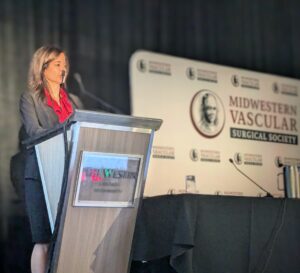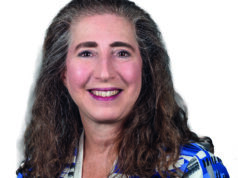
Outgoing Midwestern Vascular Surgical Society (MVSS) President Bernadette Aulivola, MD, underscored the importance of “investing in the people of vascular surgery—those learning about it and those progressing through their careers”—for the future of the specialty.
At the heart of this investment is mentorship, and, crucially, mentoring early on the training trajectory, she told the 2024 MVSS annual meeting in Chicago (Sept. 12–14).
“We know if we engage medical students early that they have a higher likelihood of applying to surgical residency if they see that [mentorship] early, because the pipeline is super early,” said the division director of vascular surgery and endovascular therapy at Loyola University in Maywood, Illinois.
“One study that took a look at general surgery residents found that about two thirds identified certain qualities within their mentors that made them choose that mentor’s specialty. This is based on the skills and achievements of that mentor, but also that the mentor talked about what they do passionately. So, we should talk about what we do.”
Aulivola also pointed to research showing the overlapping factors that impact a medical student’s decision, such as in the process of experiential learning, or “getting their hands on stuff.” Mentorship played an important role this environment in addition to mentorship alone, she said.
She highlighted one more study that looked at a simulation skills course and the impact it had on the strength of student interest in procedural specialties and vascular surgery. That interest increased throughout the eight-week course—“and that was a durable result,” Aulivola said. Ninety percent who took part attributed their interest to the technical portion and 70% linked it to the mentorship happening while they performed the simulation-based skills, she added.












